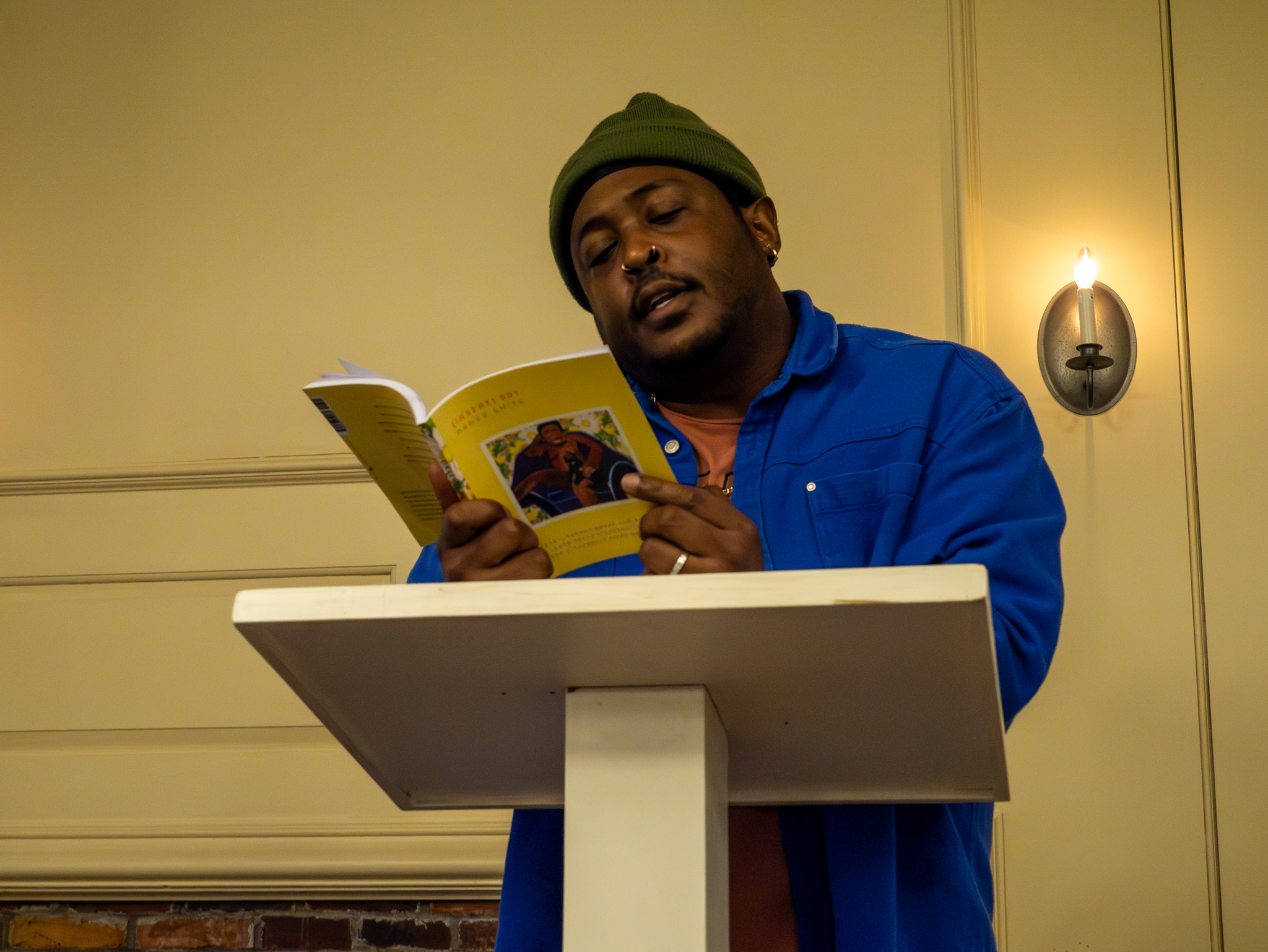Visiting poet Danez Smith discusses race, gender and bringing art into the world at reading
October 31, 2025
 Isa Cruz
Isa CruzWednesday evening, students and faculty gathered in Massachusetts Hall to hear Visiting Tallman Scholar Danez Smith perform their poetry. The reading was the first in what will be a series of two events led by Smith.
A prolific writer, Smith has authored four poetry collections that have received myriad awards, including the Forward Prize for Best Collection. Their latest collection, “Bluff,” published in 2024, was a finalist for the 2025 Pulitzer Prize. Currently, Smith is teaching an introductory poetry workshop at Bowdoin and will be leading the course “Writing Work in Series” during the spring 2026 semester.
The event traced Smith’s career from their first collection “[insert] boy” to their latest, featuring poems that addressed race, violence and gender identity. Smith opened the reading with two poems about their grandfather, where they interweave personal narratives with the cultural legacy of Blackness in America.
They moved on to the collection “Don’t Call us Dead,” published in 2017, with poems surrounding themes of racial violence. Smith explains the origins of their poem “Tonight, in Oakland.”
“It felt like a very tumultuous time in Oakland. I remember being in a lot of protests. But the problem with white supremacy and police violence in this country is I can’t remember if we were protesting somebody’s death … or the non-conviction after somebody’s murder.… So it had just felt heavy,” they said. “And then this night, it felt like everybody was just like in the streets, barbecuing in the front yard, and all this was, you know, just music. It was a different place.”
Smith’s presence behind the podium captivated the audience as the poet shifted from soft-spoken verse to bellowed chants and even a hymn. Per Smith’s direction, the crowd ditched the traditional finger snap for full-blown applause.
Despite the gravity of their poetry’s subject matter, Smith maintained levity and humor both in their work and in the interstitial periods between each poem. At one point in the reading, Smith polled the audience to determine which poem to perform next.
“Y’all want a poem about a ‘90s R&B video or a poem about dogs or a poem about making fun of people and calling them ugly and things of that sort?” they said.
In the Q&A session, Smith reflected on their body of work and progression as a poet.
“I feel the poet of my first book was … an emerging poet,” Smith said. “I do think I put in that 10,000 hours that we’re supposed to do to become a master.”
They responded to another question asking how they hope to contribute to the canon of Black literature and culture.
“I just hope my work is useful,” Smith said. “I think it was Gwendolyn Brooks who said that our work should strive to either educate, liberate or congregate our people. And so I think those are maybe three of the big pillars that I’m walking towards when I’m thinking about how to make work.”
Emma Maggie Solberg, an associate professor of English, reflected on the rawness of Smith’s poetry.
“It’s nice to be reminded that at the center of what we do is beauty, and it’s nice to get to experience that, pure and uncut,” Solberg said.

Comments
Before submitting a comment, please review our comment policy. Some key points from the policy: